



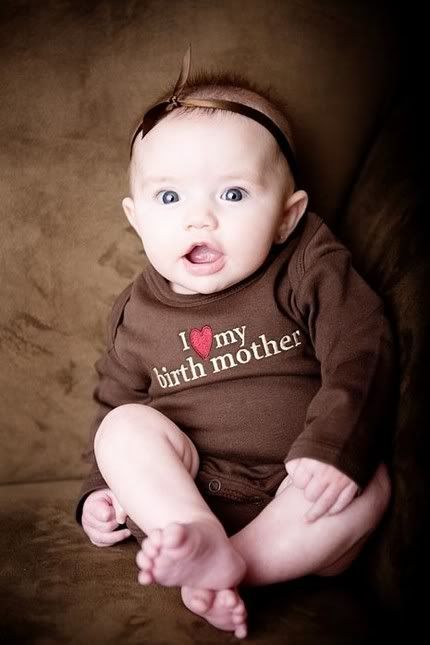
 Originally posted at the r house.
Originally posted at the r house.
A Proclamation by the President of the United States of America
| |
During National Adoption Month, we recognize the compassion of adoptive and foster families as we seek to raise awareness of the need for every child in America to have a safe, loving, and permanent home.
Adopting a child is a great joy and also a great responsibility. Parents are a child's first teachers, and adoptive families can help children learn character and values, the importance of giving back to their community and country, and the courage to realize their potential. On November 15, caring parents across our Nation will celebrate National Adoption Day by finalizing their adoptions and bringing home children in need of a hopeful life.
My Administration is committed to helping young people find the love, stability, and support that a family can provide. We have joined with community and faith-based organizations to raise public awareness of foster children awaiting adoption. With the help of the Congress, we are assisting families in overcoming the financial barriers to adopting children through programs such as the Adoption Incentives Program. In addition, the Collaboration to AdoptUsKids project, which can be found at www.adoptuskids.org, provides guidance and resources for parents exploring adoption.
During National Adoption Month, we honor adoptive and foster parents who have shown America the depth and kindness of the human heart. Their love and dedication inspire the next generation of Americans to achieve their dreams and demonstrate the true spirit of our Nation.
NOW, THEREFORE, I, GEORGE W. BUSH, President of the United States of America, by virtue of the authority vested in me by the Constitution and laws of the United States, do hereby proclaim November 2008 as National Adoption Month. I call upon all Americans to observe this month with appropriate programs and activities to honor adoptive families and to participate in efforts to find permanent homes for waiting children.
IN WITNESS WHEREOF, I have hereunto set my hand this thirty-first day of October, in the year of our Lord two thousand eight, and of the Independence of the United States of America the two hundred and thirty-third.
GEORGE W. BUSH


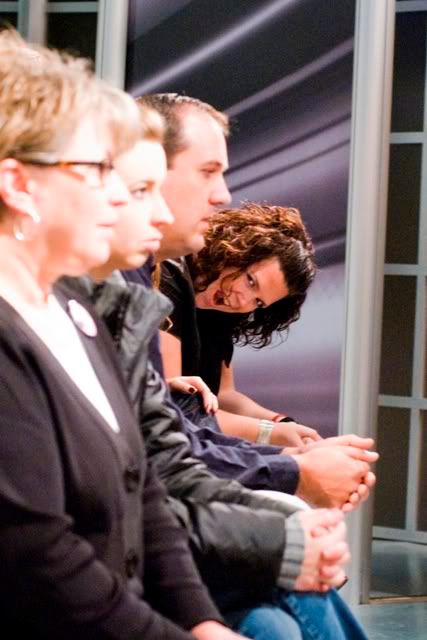

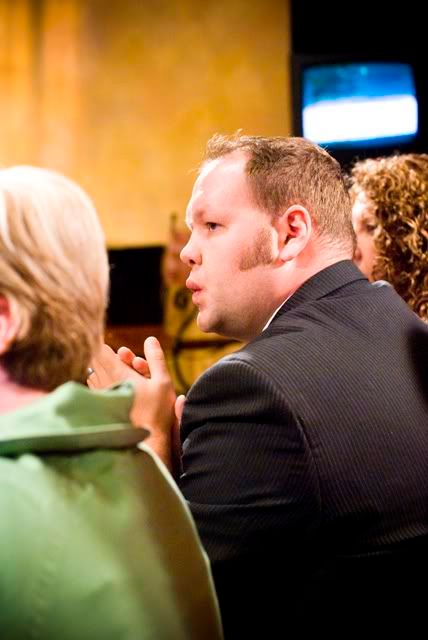
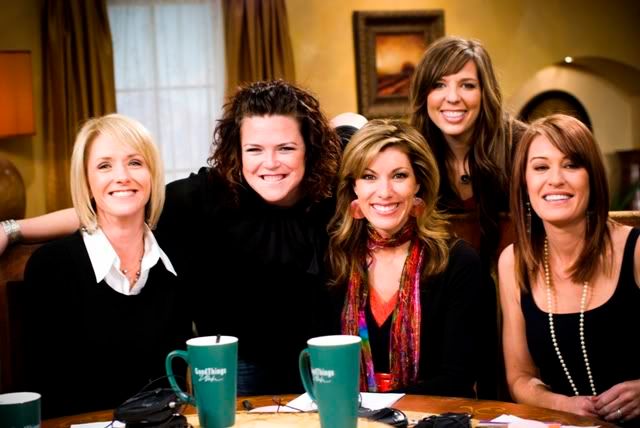
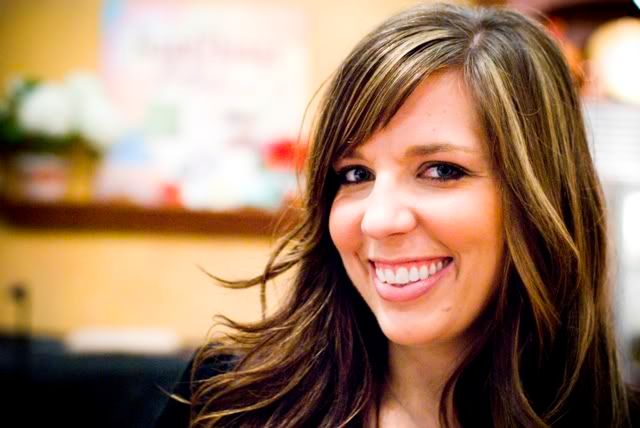




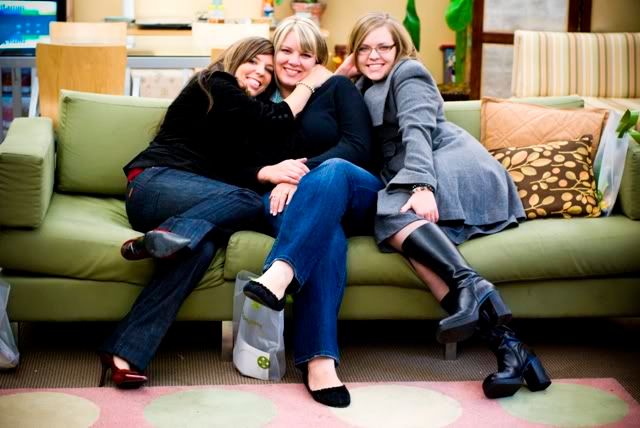
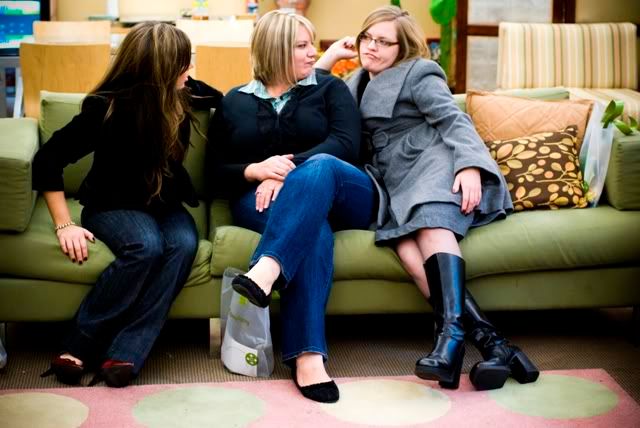
***Taken from http://www.internationaladoption.com/ ***
Positive Adoption Language
Excerpted from "International Adoption Guidebook," Mary M. Strickert © 2004
First introduced by Minneapolis social worker Marietta Spencer more than 20 years ago, positive adoption language is crafted to give the maximum respect, dignity, responsibility, and objectivity about the decisions made by both birthparents and adoptive parents in discussing the family planning decisions they have made for children who have been adopted. By using positive adoption language, we help abolish the old stereotype that adoption is second best – a dirty little secret that everyone knows about.
If you stop and really think about what you’re saying, positive adoption language is just common sense. For example, take terms such as real parent, real mother, real father, real family – these terms imply that an adopted child is not a real part of the family. By using phrases like this, you are invalidating both the child being a “real” part of the family and the “realness” of the family itself.
Through the use of positive adoption language, we educate others about adoption. By consistently speaking (and writing) in positive adoption language, someday this language will become commonplace – and the old hurtful terms will only serve to expose those who choose to be mean and small-minded. When we use positive adoption language, we say that adoption, like birth, is just another way to build a family. Both are important, but one is not necessarily better than the other.
There Are Better Ways to Say What You Mean
The old clichés "give up" and "put up for adoption" can slip out of our mouths almost unnoticed. However, are these phrases really accurate descriptions of what takes place when parents choose adoption? Of course not – no one who has gestated a child for nine months can cavalierly “give away” that child! Much heart-wrenching thought and soul searching goes into the decision to choose adoption for your child. Yes, parents do "give up" their parental rights, but do not give up on their child or give up loving their child. Saying that they “gave up” their child for adoption stigmatizes birthparents for deciding they aren't ready or able to parent. Saying that birthparents “gave up” their child is akin to saying that the birthparents made the wrong choice, when in fact, the birthparents made an incredibly strong choice by putting their child ahead of themselves.
Instead of contributing to the use of these outdated and hurtful clichés, those of us touched by adoption can do something to change the world for the better by using positive adoption language. We may have to go through a period of retraining our own minds and hearts while we carefully choose the words we use to describe adoption. We may need to (gently) correct and educate our family, our friends, and our co-workers. As we become more accustomed to using positive adoption language, we'll discover that this way of speaking about adoption will feel just as natural as the old hurtful clichés once did – and hearing the old clichés will offend us as much as a racial slur.
What we say and the words we use, communicate a lot about our values. The conscious and consistent use of positive adoption language affirms that adoption is as valid a way to build a family as birth. Choose the following positive adoption language instead of the negative phrases that helps perpetuate the myth that adoption is second best. By using positive adoption language you'll reflect the true nature of adoption – free of innuendo.
Additional Resources: Glossaries
Disabilities DefinitionsFrom the National Adoption Center, definitions of risk factors and physical, emotional, behavioral, and learning disabilities. Glossary of Adoption TerminologyFrom AdoptNet. Glossary of TermsFrom the California Association of Adoption Agencies. Glossary of Terms: Adoption SubsidyIf you are adopting a child who will receive a subsidy, these are the words to know. Glossary of Terms: InfertilityWords and terms used in the diagnosis and treatment of fertility problems, prepared by Drs. Aniruddha Malpani and Anjali Malpani Glossary of Terms: Mental HealthFrom the Substance Abuse and Mental Health Services Administration

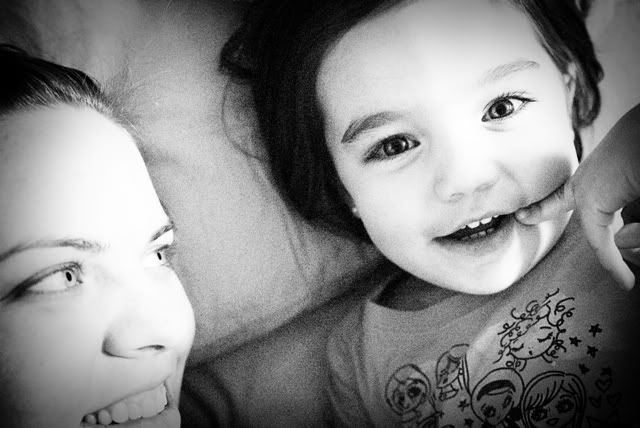
I totally understand where you're coming from.I have a daughter through adoption.
I don't want another baby yet.
I am not ready to face my "broken" body again.
I want to feel normal.
I want to have just something, ANYTHING happen without a million pieces of drama, an ordeal or having to lay out my entire life history to the world.
I hate having no privacy.
I hate the fact that the events surrounding the birth of my daughter, and the 45 days afterwards, were spent in fear and pain, not joy. We never talk about it.
I hate the loss of the other children I'd hoped for. I had also envisioned myself with kids in a pew; four, to be exact. But it looks like two may be our limit. That kills me.
I hate that people don't try to understand. That you're told, "Be grateful." It's like being told, after losing your leg, to be grateful for the other one. It's not that you aren't grateful for your leg, your arms and every other appendage you've been given, but you still miss the lost leg.
Having to once again face your own infertility is just another reminder that you're a freak. You can't do what God designed you to do. If you can't produce children, then what good is having the instincts? It's being reminded of all the hopes and dreams you have had to let go of, ones you've probably had since you were a girl.
I love my daughter. I couldn't love her more if I'd made her out of playdough myself. I celebrate her adoption and I give myself major props for being able to pull off an adoption at the age of 24. But I still mourn that I couldn't feel her kick inside of me, I couldn't share seeing her for the first time with my husband. I couldn't look at her for months without feeling guilt and pain for her birth mother.
I would love to share the joy of being pregnant with my family.
And I mourn that I may not be able to.
And that's what makes me totally normal.



